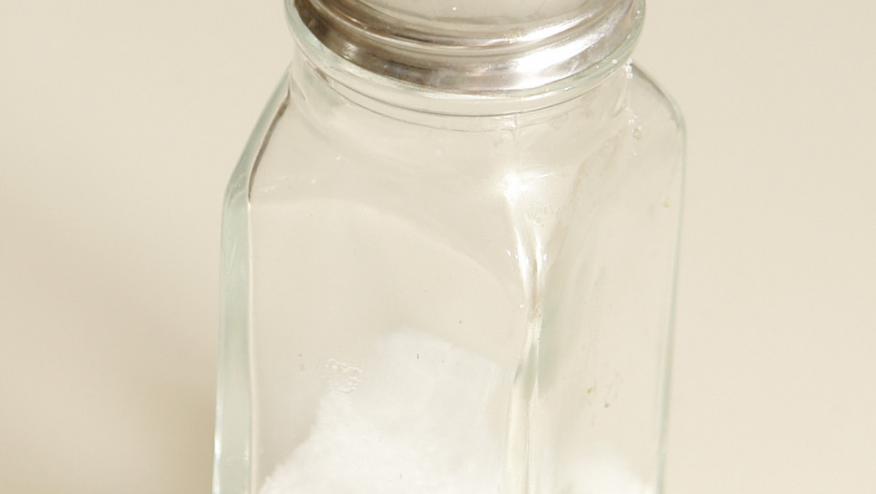DASH Diet: A Role in Gout? Save

People with hyperuricemia who followed the blood-pressure-lowering DASH diet showed significant decreases in serum urate levels, post-hoc analysis of data from an influential randomized study found.
In the Dietary Approaches to Stop Hypertension (DASH) study, participants adhering to the diet, which emphasizes the consumption of vegetables, fruits, and low-fat dairy foods as well as whole grains, poultry, fish, and nuts, had a mean decrease in serum urate levels of -0.35 mg/dL (95% CI -0.65 to -0.05), according to Stephen P. Juraschek, MD, PhD, of Johns Hopkins University, and colleagues.
And an even greater urate-lowering effect was seen for participants whose baseline serum urate level was 7 mg/dL or higher, with a change of -1.3 mg/dL (95% CI -2.50 to -0.08), the researchers reported in Arthritis & Rheumatology.
That effect size "approached that of pharmacologic urate-lowering therapy," the researchers noted.
"People with gout and elevated uric acid in their blood should consider the DASH diet as an approach to lowering their uric acid levels," Juraschek toldMedPage Today. "The DASH diet lowered uric acid over 1 mg/dL in people with a uric acid level above 7 mg/dL, which is a large effect."
Serum uric acid has been implicated in the development of gout, but thus far there has been little evidence for success in controlling uric acid with diet. Hyperuricemia also is recognized as an important risk factor for cardiovascular disease.
The original DASH-Sodium study sought to evaluate the effects on blood pressure of this diet compared with a typical American diet, with varying levels of sodium, and found that substantial blood pressure reduction occurred, particularly with low sodium intake.
"Ultimately the DASH diet redefined national dietary guidelines for the prevention of cardiovascular disease and has been adopted and nationally disseminated by the National Heart, Lung, and Blood Institute as the diet that should be implemented as the optimal nonpharmacologic approach to prevent and treat hypertension and lower cholesterol," the researchers wrote.
The team subsequently returned to the study data, conducting an ancillary analysis to look at the effects of the diet on uric acid levels -- also according to different levels of sodium intake. "We hypothesized that the DASH diet would lower uric acid levels as it contains many dietary components observed to be associated with lower uric acid levels. ... We also hypothesized that reducing sodium intake would lower uric acid levels, given its association with high blood pressure."
The levels of daily sodium were 60, 120, and 180 mmol, with the highest level reflecting the typical intake of a U.S. adult consuming a 2,600 daily calorie diet. Participants consumed each of the sodium level diets for 30 days, with 5 days of intervening washout. This study design allowed within-person comparisons of uric acid levels according to sodium consumption, the team explained.
The secondary analysis included 103 participants whose mean age was 51.5. More than half were women, three-quarters were black, more than 40% were obese, and one-third were hypertensive. Mean serum uric acid level was 5 mg/dL.
Among those whose baseline serum urate level was less than 5 mg/dL, no effects were seen for the DASH diet. But for those whose baseline level was 5 to 6 mg/dL, the reduction in uric acid was -0.45 mg/dL, and for those with levels of 6 to 7 mg/dL, there was a reduction of -0.76 mg/dL.
Contrary to expectations, increasing the sodium intake from the lowest level to the medium level decreased serum uric acid by 0.3 mg/dL (95% CI -0.5 to -0.2) and by -0.4 mg/dL (95% CI -0.6 to -0.3, P0.001 for both) for the highest level, the researchers reported.
"Our randomized trial analysis also found that high sodium intake lowers serum uric acid. The relationship between sodium intake and uric acid is controversial, yet previous physiologic studies have suggested similar findings."
For example, in one study, men whose sodium intake was raised from 20 to 200 mmol/day for a 7-day period had a 1 mg/dL decrease in uric acid levels.
It is unclear, however, why higher levels of sodium intake would be associated with a decrease in uric acid, the investigators noted. "Prior studies have shown that both sodium and urate reabsorption often occur in response to similar physiologic stimuli. This would suggest that decreased sodium reabsorption in response to higher sodium intake would also decrease urate reabsorption. It is also possible that the inverse relationship between sodium intake and uric acid reflects action of the renin-angiotensin system, as uric acid is inversely related to renal blood flow and vascular resistance."
Juraschek emphasized that the study does not support the idea that people should consume excessive amounts of sodium to lower uric acid levels: "Consuming excessive amounts of sodium could have harmful consequences on other aspects of health, like blood pressure. However, sudden changes in uric acid levels (either sudden increases or decreases) can trigger gout flares. Knowing that sodium can cause uric acid levels to fluctuate can help patients and physicians understand more about potential dietary causes of gout flares."
Limitations of the study included the exclusion of individuals with cardiovascular disease and diabetes, as well as the study's relatively short duration.
This study was sponsored by the Nationanl Heart, Lung, and Blood Institute.
This article is brought to RheumNow by our friends at MedPage Today. It was originally published on August 15, and authored by MedPage Today senior staff writer Nancy Walsh.










If you are a health practitioner, you may Login/Register to comment.
Due to the nature of these comment forums, only health practitioners are allowed to comment at this time.